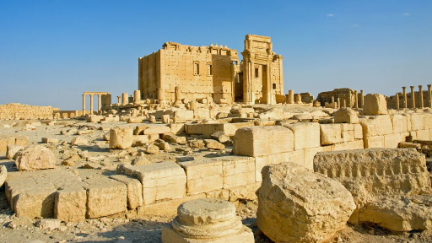The Cradle of Civilization
Damascus, the capital city of Syria, stands as a testament to the enduring legacy of human civilization. With a history that spans over thousands of years, it has witnessed the rise and fall of empires, preserved remarkable architectural treasures, and fostered a vibrant cultural tapestry. However, the ongoing war in Syria has dealt a severe blow to the beauty and splendor of Damascus. Once a thriving cosmopolitan hub, the city now bears the scars of destruction and displacement.
Damascus, often referred to as the “oldest continuously inhabited city in the world,” is a living testament to the ingenuity and resilience of ancient civilizations. From the Umayyad Mosque, one of the world’s most revered Islamic architectural masterpieces, to the impressive Roman-era ruins scattered throughout the city, Damascus was a living museum of history. However, the war has taken its toll on these precious cultural heritage sites, leaving many damaged or destroyed.
The Destruction of Historical Neighborhoods
Historical neighborhoods such as Bab Touma, Bab Sharqi, and Al-Qaimariya were once vibrant quarters, teeming with life and cultural richness. The narrow, winding streets lined with traditional houses, bustling markets, and hidden courtyards formed the backbone of Damascus’s charm. Tragically, many of these neighborhoods have become battlegrounds, subjected to heavy shelling and urban warfare. Countless homes and architectural gems have been reduced to rubble, forever altering the city’s skyline.
This article is sponsored by World of Travel. We thrive on offering you the best services with the highest quality and satisfaction. Memorable journeys begin with the tried, tested and trusted WORLD OF TRAVEL by Irshad Malek …
Displacement and the Destruction of Homes
The war in Syria has resulted in one of the largest refugee crises of our time, with millions of people forced to flee their homes in search of safety and stability. Many Syrians became refugees, seeking shelter in neighboring countries or embarking on perilous journeys to distant lands. The conflict has not only shattered lives but also left a trail of destroyed homes in its wake. Countless residential areas, once filled with the laughter and warmth of families, now lie in ruins, reduced to rubble by bombings and armed clashes. The loss of homes and communities has further deepened the human tragedy caused by the war, leaving a lasting impact on the lives of those who were forced to abandon their cherished dwellings.
Damage to Iconic Landmarks
The Umayyad Mosque, a symbol of Islamic architecture and spirituality, suffered damage during the war. The minaret, which stood tall for centuries, was partially destroyed in an explosion, robbing the city of one of its most recognizable landmarks. The historic walls that once protected the city and the iconic Azm Palace, a showcase of Ottoman-era grandeur, have also experienced significant damage, affecting their structural integrity.
Displacement and Cultural Erosion
Beyond the physical destruction, the war has displaced a significant portion of Damascus’s population, resulting in the loss of the city’s vibrant social fabric. Communities that have thrived for generations were uprooted, leaving behind vacant houses and shuttered businesses. The loss of this diverse mix of cultures, traditions, and voices has had a profound impact on the soul of Damascus.
Preservation Efforts and Resilience
Despite the devastation, there have been efforts to preserve and protect Damascus’s cultural heritage. The Directorate-General of Antiquities and Museums (DGAM) has worked tirelessly to safeguard historical sites, relocate artifacts, and raise awareness of the city’s architectural and cultural significance. Restoration projects have begun in some areas, aiming to revive the spirit of Damascus and rebuild what has been lost.
Supporting Local Communities
Tourism plays a crucial role in revitalizing local economies and providing income opportunities for communities affected by the conflict. By visiting Syria and engaging in responsible tourism practices, travelers can directly contribute to the livelihoods of local people, helping them rebuild their lives and communities.
About World of Travel
Sure World of Travel Head Office is situated in the heart of Overport Durban. With a newly refurbished office the enthusiasm and energy is trebled offering clients the best value for money. Due to the high public demand Sure World of Travel also opened a branch in March 2019 at the Ormonde Shopping Centre in the heart of Johannesburg highlighting the brand even further. The warm city of Cape Town now also shows off the new Sure World of Travel office. This exciting new venture is to make certain that travel lovers in CT are offered the best deals as well. No travel arrangement is too big or too small for Sure World of Travel.



